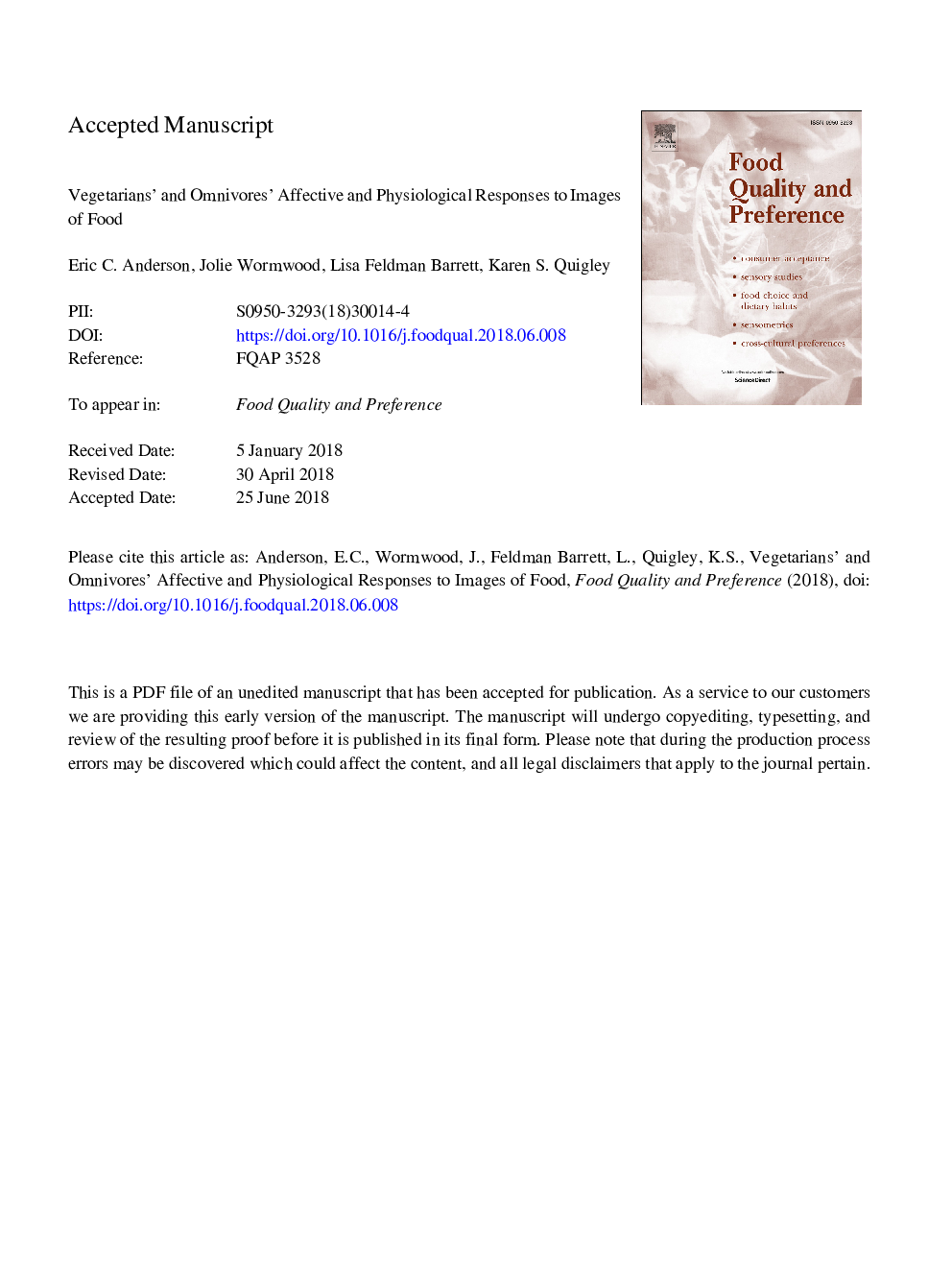| Article ID | Journal | Published Year | Pages | File Type |
|---|---|---|---|---|
| 8838357 | Food Quality and Preference | 2019 | 49 Pages |
Abstract
Many vegetarians report that meat is unpleasant, but little else is known about their affective responses to meat and non-meat foods. Here we explored affective responses to food images in vegetarians and omnivores and tested the hypothesis that vegetarians have global differences in affective processing (e.g., increased disgust sensitivity). We presented pictures of different food items and recorded participants' affective experience while we recorded peripheral physiology. We found that vegetarians' self-reported experience of meat meal images was less pleasant than omnivores', but that other food images were equally pleasant across the two groups. Moreover, vegetarians and omnivores had strikingly similar physiological responses to all food images - including meat meals. We interpret these results from a psychological constructionist perspective, which posits that individuals conceptualize changes in their bodily states in ways that match their beliefs, such that increased sympathetic nervous system activity may be conceptualized as an experience of excitement about a delicious meat meal for omnivores but as an experience of displeasure for a vegetarian who believes meat is cruel, wasteful, impure, or unhealthy. This interpretation is consistent with emerging neuroscience evidence that the brain constructs experience by predicting and making meaning of internal sensations based on past experience and knowledge.
Related Topics
Life Sciences
Agricultural and Biological Sciences
Food Science
Authors
Eric C. Anderson, Jolie Wormwood, Lisa Feldman Barrett, Karen S. Quigley,
